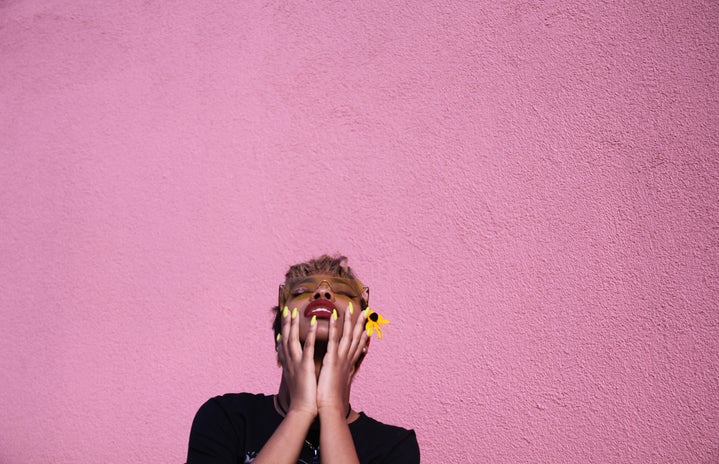Emmet Till, Eric Garner, Trayvon Martin, George Floyd, Breonna Taylor.
I’m sure you know some of these names.
But let me give you a new list.
Dr. Traci Parker, Jose Gonzalez, Gracie Mercedes, Rupi Kaur, Reni Eddo-Lodge. I bet you don’t know too many of these people. Well, let me tell you a little bit about them.
Dr. Traci Parker
Dr. Parker is an associate professor for the University of Massachusetts, Amherst. She has studied at Cornell University and attained her Ph.D. at the University of Chicago. She was the first professor I met (I took her AfroAm 236 class) and I was instantly mesmerized. There I was sitting in front of a wealth of knowledge, and honestly, it was daunting at first to go to her office hours, but after the first time, I never stopped. What I found was an amazing woman, teacher, and someone who honestly gave me the space to explore and talk about topics (mostly regarding race, racism, and just current events that were driving me mad — especially during an online semester). But I also found someone who loves reality TV, a pet lover, an author…just an all-around caring person. Honestly, I’m pretty sure she just listened to me ramble for an hour most weeks (which really provided me with some sanity this semester), but she also showed me that professors can actually work with students (I know, crazy to think about that right) to foster and create a learning environment that works best for each individual. It had been a long time since I had a teacher who I didn’t feel was the “enemy.” Additionally, the class, The History of the Civil Rights Movement, gave me a solid foundation and understanding of many problems that relate to systemic racism in America today. I cannot emphasize how much I learned from the class and how much I think others would benefit from taking this class or classes like this one. Rarely do we learn about black history in a holistic manner, but it’s so necessary, so much so that I came out of this class seeing the world very differently and being able to put words to many of the frustrations I was having.
Jose Gonzales
He is currently a graduate student at the University of Massachusetts, Amherst and was my TA for the AfroAm class I was taking. I went to nearly every single one of his office hours and talked for upwards of two hours every time. I learned how he is studying how colonialism has impacted the development of African descendants in North America and the Caribbean. I listened to how he wants to bridge the divide between African descendants within America. I genuinely spent every minute absorbing anything and everything I could because he spoke to me in a way that I could understand and apply to other parts of my education. But the most valuable thing he said to me was along the lines of “You’re a good writer. You should keep writing.” No, it wasn’t because this stroked my ego, it was because there hadn’t been anyone in a really long time that believed in me (family doesn’t count). But if you’re like me—someone who at least for a point in time really struggled with enjoying learning and being happy during school—you’ll understand how much this belief means and how valuable being seen in a sea of students is. And I understand how lucky I am to have a family that supports me, but for some reason, this was different. I guess it was because I learned how to work with my educators and develop my understanding rather than against them, but regardless, here I am, continuing to read, write, and work towards achieving all my goals and dreams.
Grasie Mercedes-Garcia
She’s an Afro-Latina actress, writer, director, and podcast host from NYC. I first heard of her while listening to her podcast, Not (Blank) Enough, where she interviews others and focuses on everyday insecurities. Some of my favorite ones are “Not Conventional Enough,” “Not Thin Enough,” and “Not White Enough.” With over 70,000 followers, she shares stories relating to infertility as well as thyroid surgery and also features her fashion, beauty, and travel content. It’s very rare that POC creators like her pop up on my recommendation, but her projects speak to me in a way that many other popular [white] creators simply cannot.
Rupi Kaur
She’s an Indian-Canadian poet, and honestly, has a very large following but I wanted to include her in my list because after I bought Milk and Honey and The Sun and Her Flowers, I decided to follow her on Instagram. And holy sh*t…the first thing I saw was that she looked like me. For those who crave representation, and have been consuming very white and eurocentric content for what feels like your entire life, and for those who are trying to break that cycle, reading Rupi Kaur’s books, looking at her artwork, and watching her performances is a great place to start. She’s very unapologetic in how she writes, something I really admire. She’s an amazing writer, and her books are often quick reads but give you the chance to really sit and think about what she’s written.

Reni Eddo-Lodge
Reni Eddo-Lodge is a British journalist and author, whose writing primarily focuses on feminism and exposing structural racism. In 2020, she became the first black British author to top UK book charts. Her book, Why I’m No Longer Talking to White People About Race encapsulates many of the frustrations that a majority of POC cannot articulate. The sales skyrocketed after the murder of George Floyd, and I have to agree with her, it’s an entirely bittersweet moment that she garnered attention to her work. Not only because it wasn’t until 2020 that a black author achieved this, but because a tragedy—essentially a film of someone being murdered—prompted people to consume anti-racist content. I think that my frustrations run parallel to hers because there is a huge disconnect between POC and white people solely because structural racism is not taught and those who cannot experience it have the luxury of living life believing that everyone has the opportunity to be as vocal, heard, and seen as they [white people] do.
By no means am I telling you to tokenize the BIPOC people in your life. Rather, I’m asking you to appreciate the lives and accomplishments of people who are often overlooked, ignored, and underrepresented while they are alive. We shouldn’t only pay attention to Black lives once they end, once they turn into just another hashtag. And I’ve noticed that the BLM movement became a trend. It suddenly became cool to post the black square on your Instagram and push out a blanket statement about how you care about Black lives and why it is important to pay attention to the movement. Don’t get me wrong, I think it is extremely important for as many people as possible to know that the movement exists, understand what they are fighting for, and know what they are asking for, but the performative activism on social media diminishes the importance and impact of that movement. Many businesses even capitalized off the growing popularity of the BLM movement during the summer of 2020 when communities of color were being hit the hardest by the coronavirus.

As I’ve entered college, diversity and the recognition of multiple perspectives have become increasingly important to me. I’ve never had too much representation on the cover of magazines, in TV’s, or in books. And oftentimes, colleges are majority white (especially because it’s becoming more and more of a luxury to attend). This lack of representation implicitly and explicitly sets whiteness as the norm; not fitting into this perception of ideal whiteness and subsequently silencing POC voices take a toll on those who silently suffer every day.
And these past few months I’ve become increasingly frustrated. I can feel a fire constantly burning inside me and yet many times I seem unable to put this frustration into words. Of course, it doesn’t help that many people tell me I’m too young, too bold, and want change too fast. I’ve even been told by those closest to me that change will only happen if I compromise, find a middle ground, prioritize white feelings over BIPOC trauma.
“Those who say it cannot be done should not disrupt those who are doing it.”
And if there’s one lie that too many people too readily believe, internalize, and regurgitate it’s that “it’s too hard, it’ll never happen.” Too often people have told me to silence myself, to keep my head down and work hard, to appreciate what I already am so grateful to have. I never forget how lucky I am, but I will never stop speaking my truth or amplifying the voices of those who have been silenced for far too long.
BIPOC struggles are real and continuous—the more I read, watch, and learn, the more angry, frustrated, and cynical I become. I get tired of trying to explain to white people why, in America, you cannot be racist towards them (like oppression is just another thing they want to take from BIPOC people…sorry, not this time). I get tired of being calm, cool, and collected when other [white people] get to lash out. This fight ages you like no other. But I don’t think that I can stop now. I don’t think I’ll ever stop speaking. And I’m damn sure that I’ll never quiet down.



